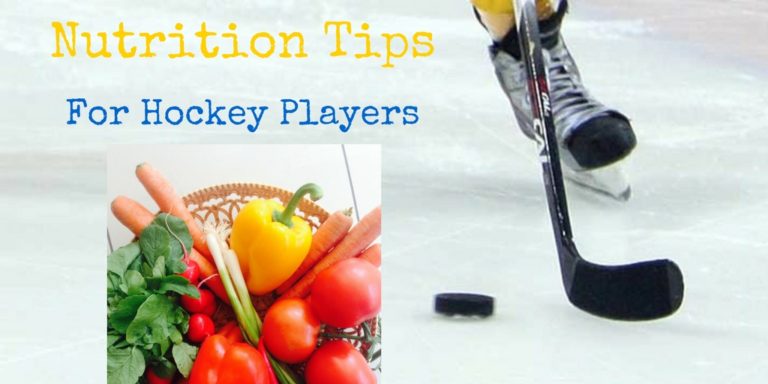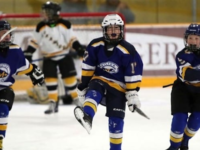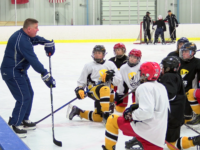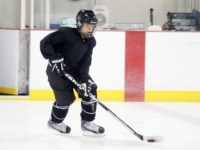Nutrition is important for the long-term success of any athlete, including hockey players. Below, we provide some nutrition tips to help players achieve maximum health!
Carbohydrates : Carbohydrates, “carbs”, will provide energy for hockey players during intense workouts. This is because intense activity uses up muscle glycogen (the area where carbohydrates are stored). Eating the right amount of carbohydrates will help athletes perform faster and longer. Additionally, carbs are the main source of energy for the brain. When carbs are consumed, they are broken into smaller sugar molecules called glucose. Glucose from carbohydrates provides energy to motivate and move you. Examples of foods that contain carbohydrates are whole grain foods such as breads, granola bars and brown rice. Carbs also includes legumes such as chickpeas and kidney beans. Other examples of carbohydrates include plain/chocolate milk, almond milk and yogurt.
Protein : Protein consumption is important as well. Protein assists in endurance for hockey players. Protein also aids in the development and growth of muscle tissue. Eating protein after a physical session assists in providing amino acids that repair muscles. Protein helps the body maintain a strong immune system. Hockey players should avoid eating too much protein-based food. This is because protein-based food takes longer for the body to digest. Examples of protein based food include lean poultry, fish and meat. Other examples include, nut butters, cashews, eggs, milk, yogurt and cheese. Plant based protein is also great because it contains fiber. Examples of plant based protein includes tempeh, hemp seeds, and soy milk.
Fats : Fats are important because fats provide the body with insulation and energy storage. Fats keep your nervous system and skin healthy as well. Fats also help with muscle recovery, and minor injuries. Some example of fats are omega – 3 fats found in salmon, olive oil, avocados, flax- seed and coconut milk. Try not to consume a lot of fats before a game, because fats take longer for your body to digest.
Vitamin and Minerals : Vitamins and minerals help to unlock energy that your body uses as fuel. Some examples of vitamins include magnesium, fluoride and Vitamin D. You can get these nutrients from foods that you consume or take supplements.
Staying Hydrated : Drinking water is important as a hockey athlete. Staying hydrated prevents injury and maintains peak performance. Lack of water results in symptoms such as headache, nausea and fatigue. Dark urine is usually a sign of being dehydrated.
Timing of Meals : Breakfast is the most important meal of the day. In the morning, glycogen levels are lower from sleep. Eating the right food provides a “jump-start” to the day ! Try to eat some carbs, protein and water for breakfast. Additionally, try to eat two – three hours before an exercise related activity. During a game, staying hydrated is important. If you have a break, during a game, try to eat small snacks like raisins, or celery pieces. Post – activity, try to fuel up on carbs in order to prevent soreness and injury.






